5. Vagabond tie with Au Hasard Balthazar
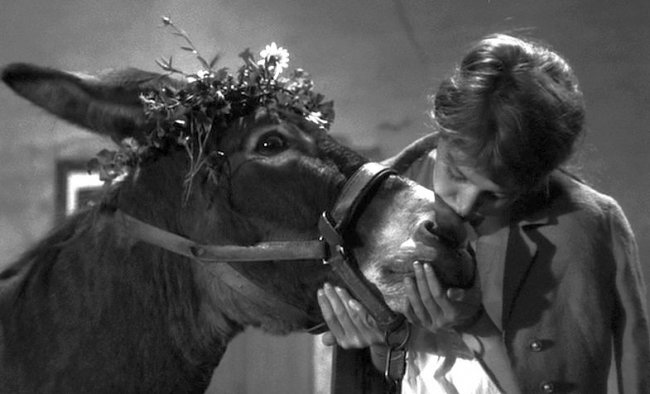
Agnès Varda’s Vagabond recasts contingency as fate as we witness Mona’s dead body from the start and come to frame her death as both fated and unjust. Following Mona, a drifter, we come to experience the idea that Heidegger claimed was so present in Sophoclean tragedies such as Oedipus, of the human being as without a home. Could her condition be interpreted as new rendition of a tragic outcast?
Au Hasard Balthazar follows both a girl living in a rural township and a donkey, that suffer as martyrs. The director, Robert Bresson was an atheist catholic, meaning that he believed in an earthly transcendence.
According to the philosopher Arthur Schopenhauer, tragedy encourages resignation and dignity amid the many injustices of life and living—according to Schopenhauer, existence is suffering, in an observation that reconciles atheism, Buddhism and Christian notions of original sin. Yet tragedy allows us to see suffering and in a sense transcend it through being resigned to life. The donkey is framed by Bresson as a saint and martyr, who transcends much of the baseness of human degradation. Bresson’s film is one of the greatest eveer made.
4. Elevator to the Gallows
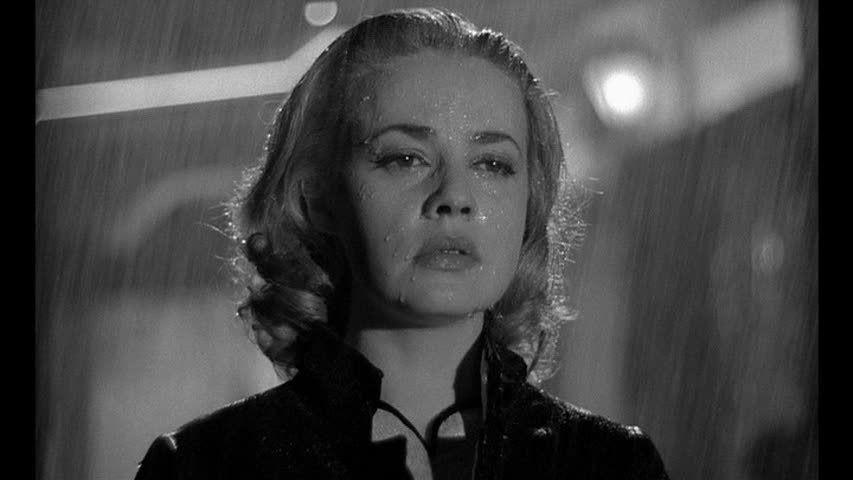
Aristotle is often misattributed as claiming that the hero suffered from a fatal flaw. Rather Hamartia, the term he used, simply meant mistake. This mistake could be minor but have a huge consequence.
Elevator to the Gallows concerns how mistakes can ruin otherwise perfect plans. The film follows a man, Julien Tavernier, who is in a loving relationship with his boss’ wife, Florence Carala. But it is not for this reason that he murders his boss and makes it resemble a suicide. His boss is a brute who profits from war and, as Julien states, deserves to die. Things go smoothly for Julien until he realizes he has left a grappling hook hanging from his boss’s window. He goes back and then becomes stuck in the elevator.
What appears an easily remedied mistake, establishes a chain of errors with a tragic outcome, one that affects Florence. Stuck in the elevator, Julien does not know that his car has been stolen by two youthful lovers and has no way to communicate his entrapment in the elevator to Florence. Florence desperately waits for Julien, but sees a youthful woman drive past in Julien’s car and mistakes the man for Julien. This mistake of identification seals her fate in a gripping noir, directed by Louis Malle (his debut feature) and a score by Miles Davis—one of the most tragic scores ever composed.
3. The Mist
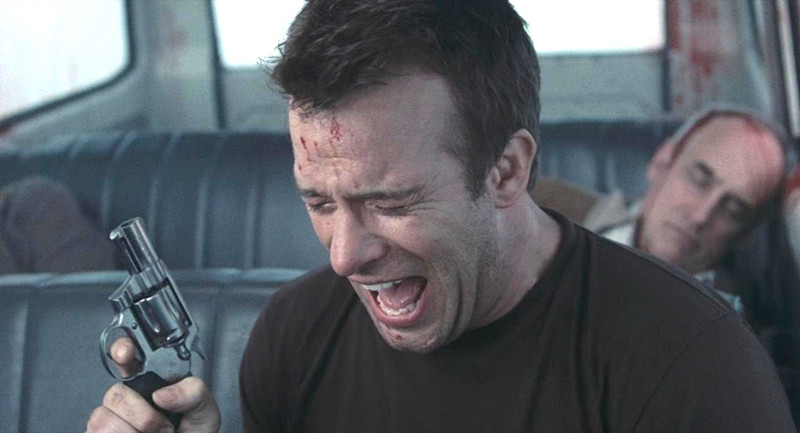
Martha C Naussbaum frames tragedy as concerning moral luck. Moral luck operates in a number of ways but concerns how our morality is affected by circumstance and chance. For Nussbaum, goodness is fragile and can seem damaged by luck or undermined.
The great misfortune is that the protagonist of The Mist kills his family to protect them from a fate worse than death only to discover that he and his family were only moments away from safety and rescue. Not having a bullet left, he must live through the guilt. His noble sacrifice for his family perversely turns via a tragic irony into a gesture that condemns both them and himself.
2. Medea (1969) and Medea (1988)
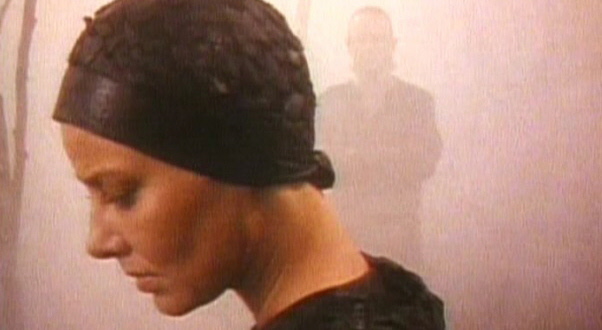
Pasolini’s Medea isn’t true to Euripides’ play in many respects but it accentuates a theme present though more pronounced in The Bacchae, namely the irrational qualities of the divine. Though Nietzsche was no admirer of Euripides, distrusting Euripidean irony, Pasolini’s rendition largely empties the plot of irony and instead suggests a frenzied sense of becoming and affirmation associated with Nietzsche’s take on tragedy. Nietzsche argued that tragedy was an antidote to rationalism where suffering was enjoyed as a type of intoxicating spectacle. Such an experience is conveyed by a dying Medea as she joyfully condemns Jason.
Lars von Trier’s Medea could not be more different but still stays true to Euripides. Philosophers such as Schelling, Hegel and Nietzsche viewed Euripides as polluting the power of tragedy. For them Euripides was too modern and ahead of his time and therefore his works neither fit in today or belong to antiquity. Yet this modern quality is extracted and brought to the surface by von Trier who shows Medea as experiencing the agonies of the modern, conflicted self. She experiences not merely regret or sadness but a revulsion and disgust at her acts.
It is because Euripides is such a problematic tragedian that his works are perhaps most suited to modern reinterpretation.
1. The Sacrifice
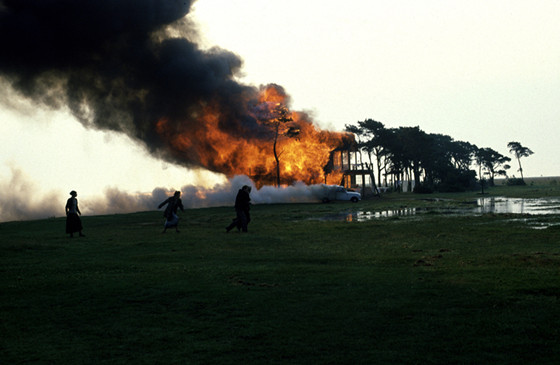
Andrei Tarkovsky’s final film evokes a sense of atmosphere and mood as well as a tragic choice. The Sacrifice is about a choice Alexander, an atheist makes, to believe in God in order to prevent war. Surrounded by his loving family, news breaks that a nuclear war appears imminent, one that will destroy the earth. He prays to God, and asks that if God can provide some way to save his family and the world, he will burn down his house and leave his family forever. He learns of a good witch whom he sleeps with in hope that she will, as per his bargain with God, prevent the destruction of everything he holds dear. When he wakes up, and everything appears as it was before the announcement, he burns down his house and runs away from his family.
The film provides a sort of synthesis between the idea of the leap of, toward and into faith with tragic sacrifice. According to Kierkegaard, an act of faith is distinct from the tragic protagonist’s choice between two rights For Kierkegaard, the tragic hero’s acts have a social justification, but a sacrifice made of faith goes against any social justification.
Hence, the film envisions a sort of meta-tragic position where the only way the protagonist can preserve himself is through destroying himself, losing his familial vestiges and support and bringing himself directly in relation to the divine over and above social morality. Slavoj Žižek has described the overlap of tragic concerns with Kierkegaardian sacrifice as a meta-tragic situation. The Sacrifice is then meta-tragic.
But such analysis could obscure an appreciation of the atmosphere of the film, which is arguably fuses Heidegger and Nietzsche’s analysis of tragedy. As previously mentioned, according to Nietzsche, tragedy is a sort of sacred rite, a happening not a doing. Rather than a narrative or a work of drama, tragedy is a sacred unfolding of place, a sort of disclosure about humanity’s oneness through suffering with a location.
Heidegger asserts that tragedy reveals that the human being has no place, that the home is an illusion and that nature and the world are violent. Moreover, Heidegger argues that humanity is a violence on the earth and particularly draws attention to technology’s destructive power. Given the inciting incident is nuclear annihilation this film captures the strangeness of the world.
Author Bio: Aleks Wansbrough has a PhD in visual arts and has written for academic publications as well as mainstream ones on film and philosophy. He hopes someday to make a feature film himself.